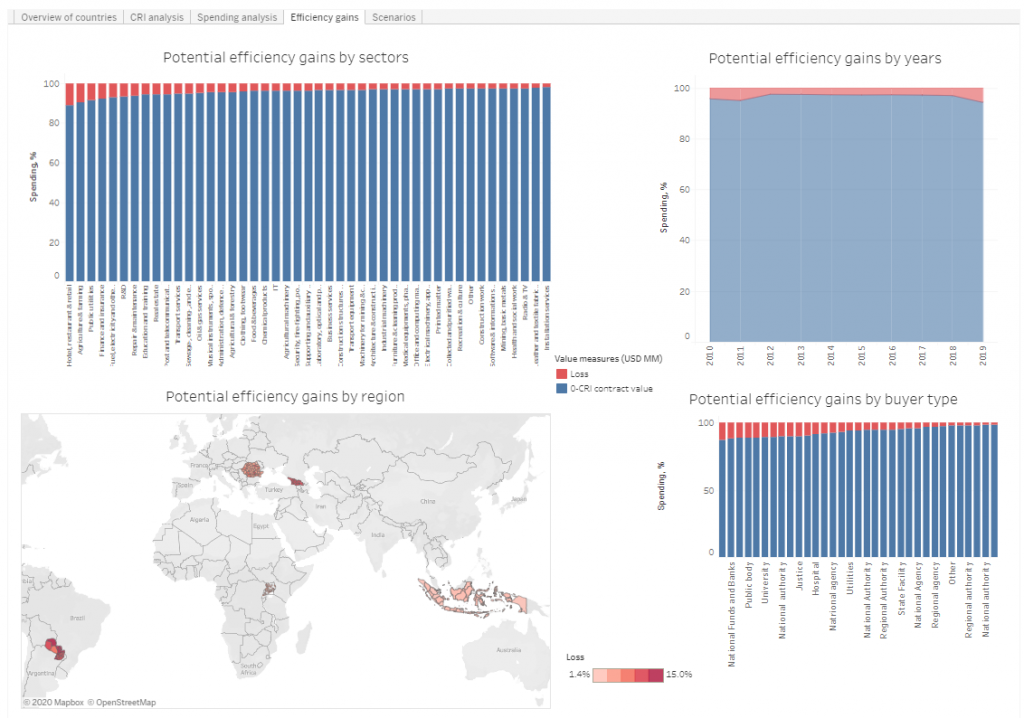The Government Transparency Institute and FCDO UK team has won the first place in the IMF Anti-Corruption Challenge with its project Public procurement corruption risks: Harnessing Big Data for better fiscal governance and growth. We also worked together with the IMF to deliver this innovative project.
See our presentation followed by a Q&A at the IMF Pitch Event
We developed an intelligence tool which uses big data analytics and peer-reviewed methods to identify corruption risks in micro-level public procurement processes and estimate their impact on prices. The pilot dashboard covering 5 countries (the extended dashboard for 34 countries can be seen here) enables policy makers, first, to explore corruption risks in public procurement both on the macro and micro levels, for example looking at the risks of individual ministries over time. This analysis helps to identify hotspots of corruption risk where policy change is likely to achieve the biggest impact. Second, our tool allows policy makers to track the financial impacts and growth costs of corruption risks on the micro and macro levels. For example, overpricing in public infrastructure projects can be traced back to identified corruption risks. Third, policy scenario modelling has been done on the basis of the identified links between corruption risks and costs. For example, the financial benefits of decreasing single bidding are predicted informing policy choice on how best to reduce budget deficits without compromising public service quality. Read the full policy brief here on our methodology and results.
See the dashboard:
The IMF Anti-Corruption Challenge, launched during the 2019 World Bank/IMF Annual Meetings, aimed to support the development of new and innovative approaches on the following question: How might we create behavioral change and increased transparency to enable good governance and tackle corruption in the public sector? It is organized by the IMF Innovation Lab (iLab) and Legal Department (LEG) in partnership with the Fiscal Affairs, Finance, Strategy, Policy and Review, Institute for Capacity Development, and Communications departments. This challenge is sponsored by the Swiss State Secretariat for Economic Affairs (SECO).
